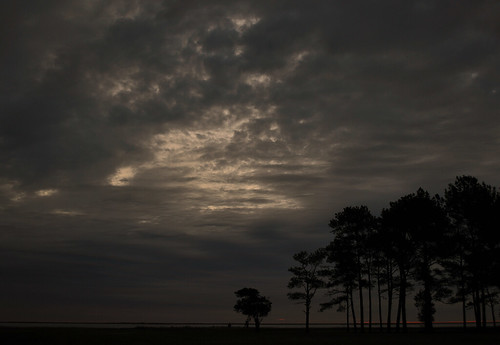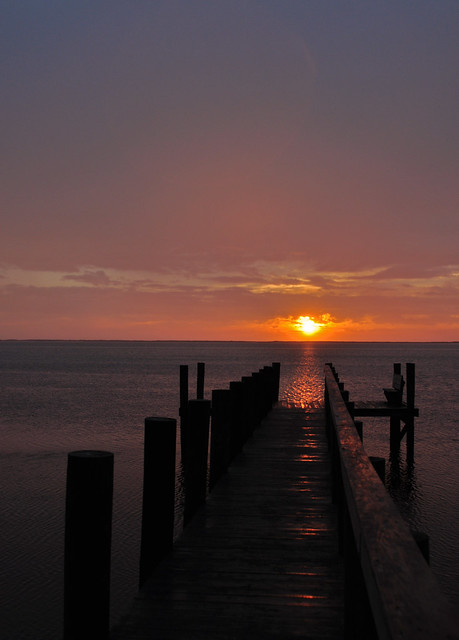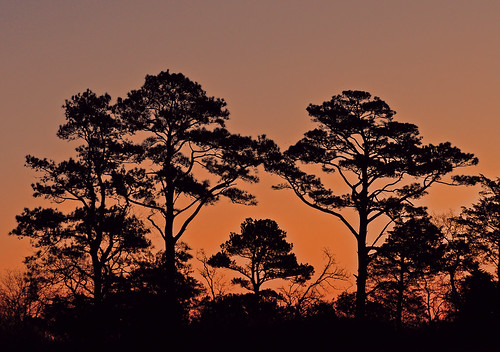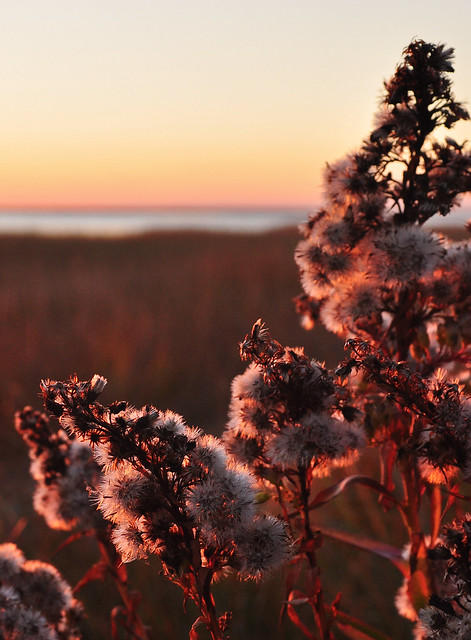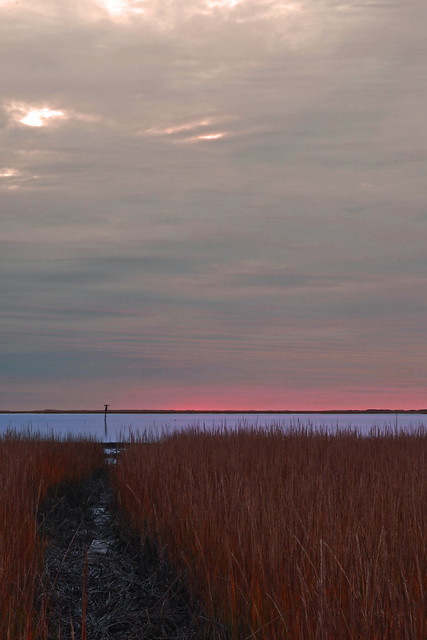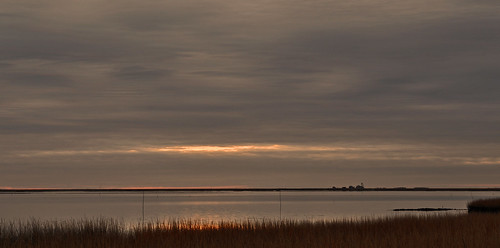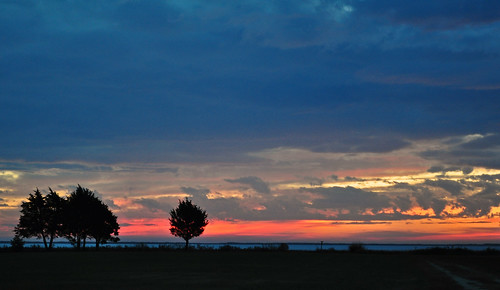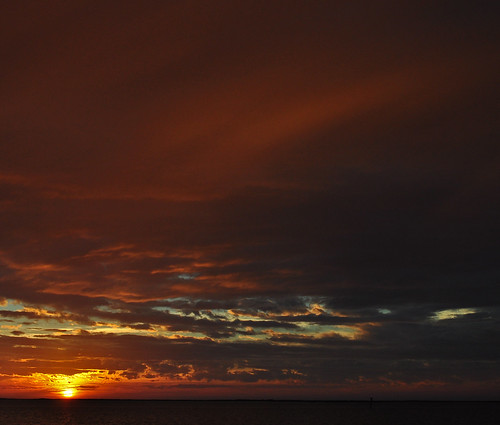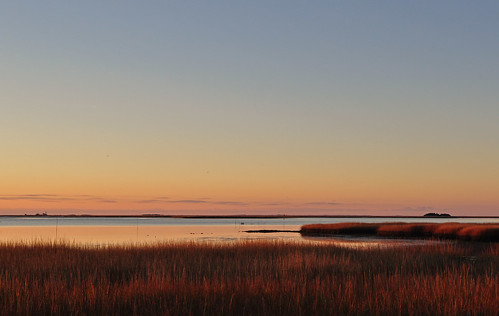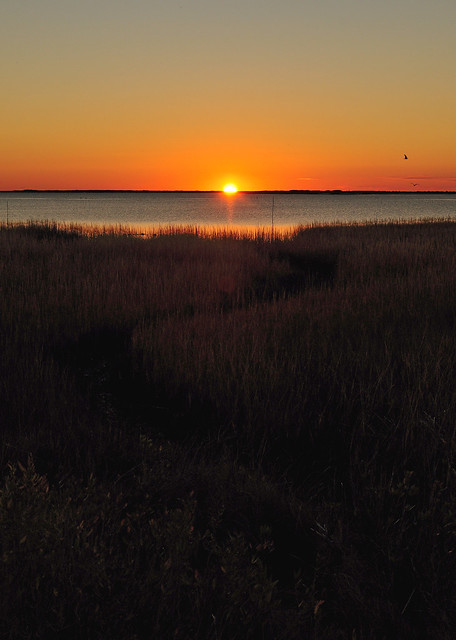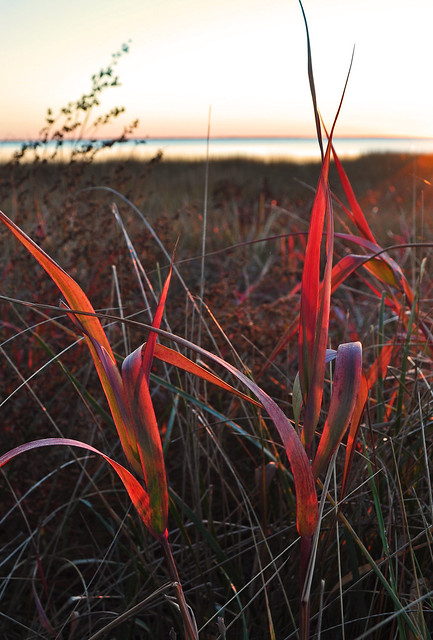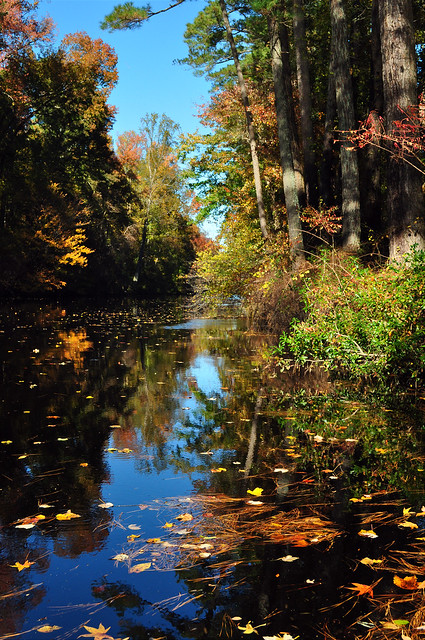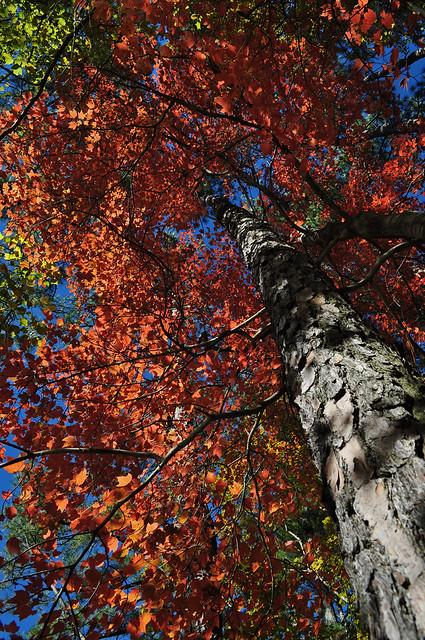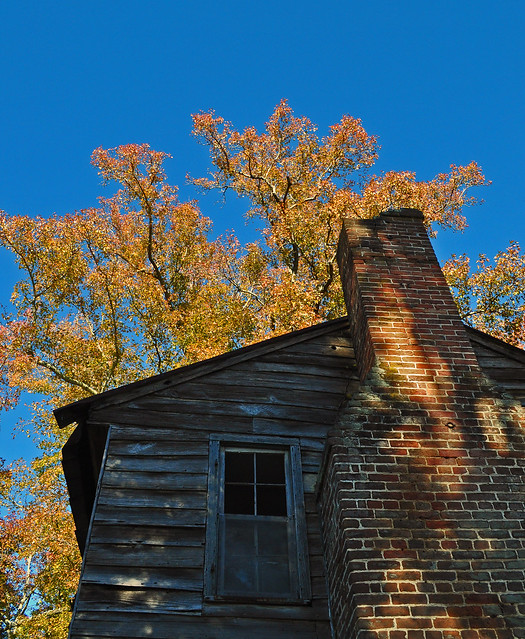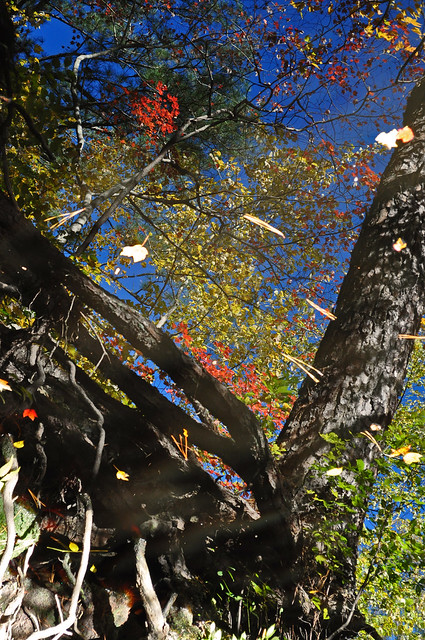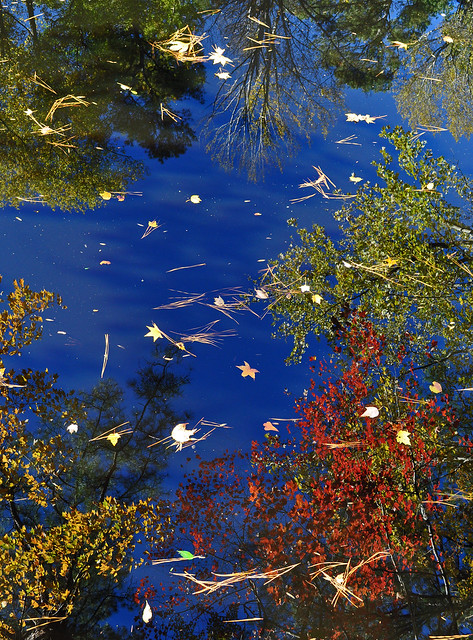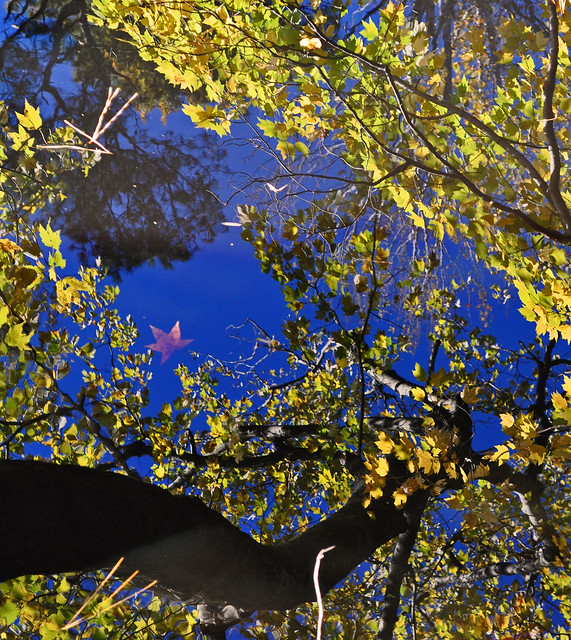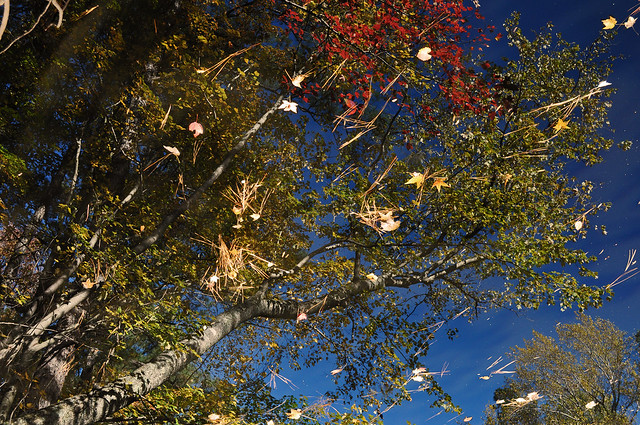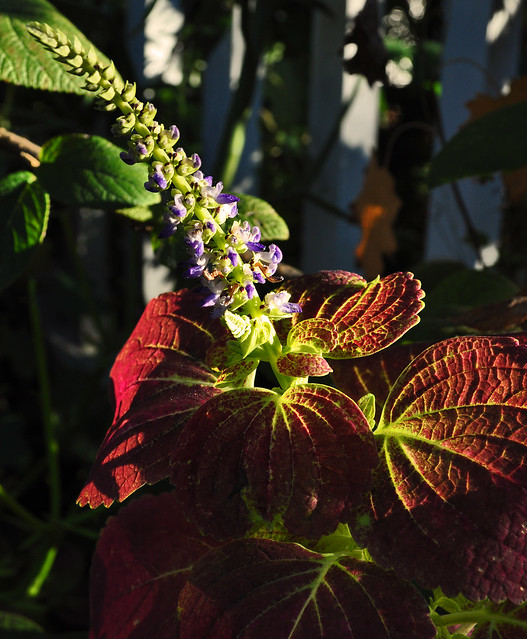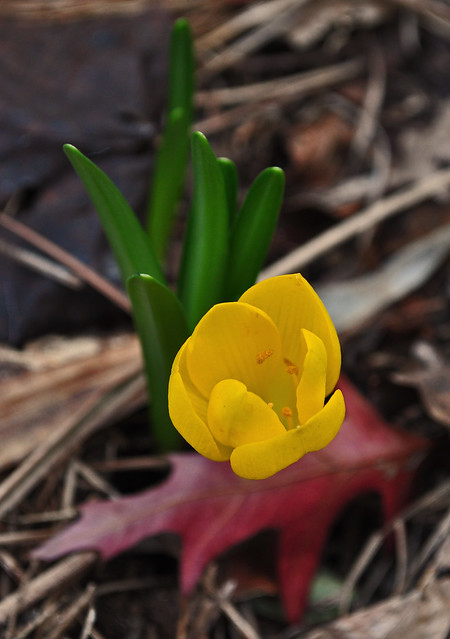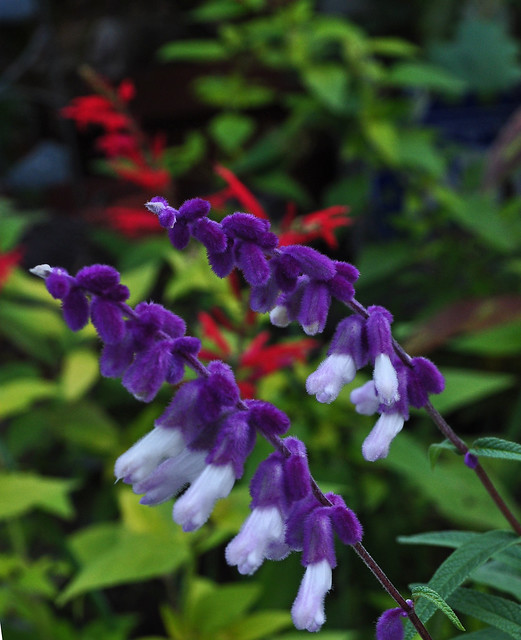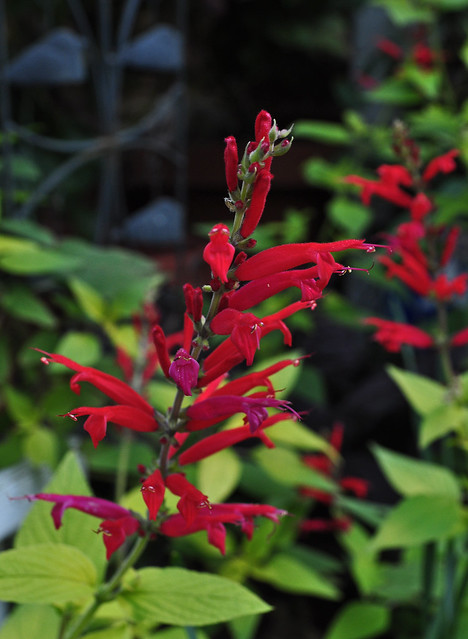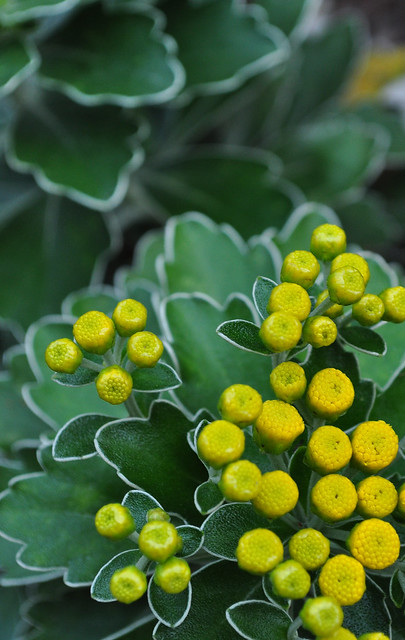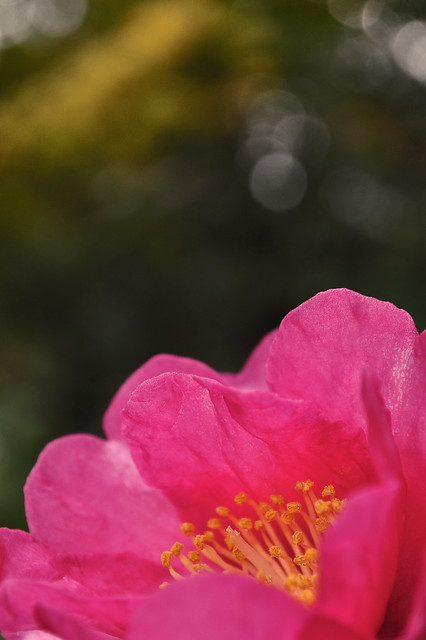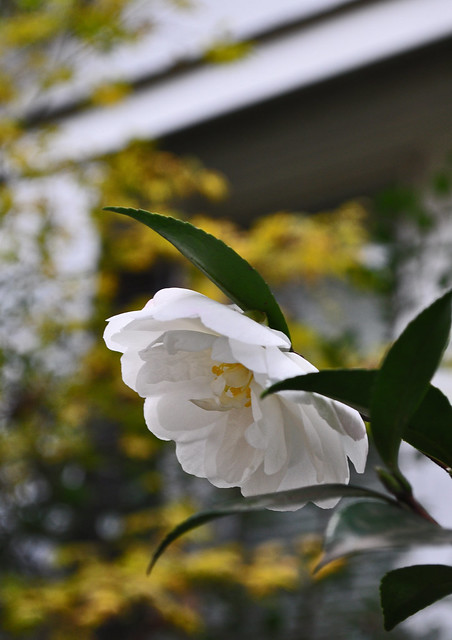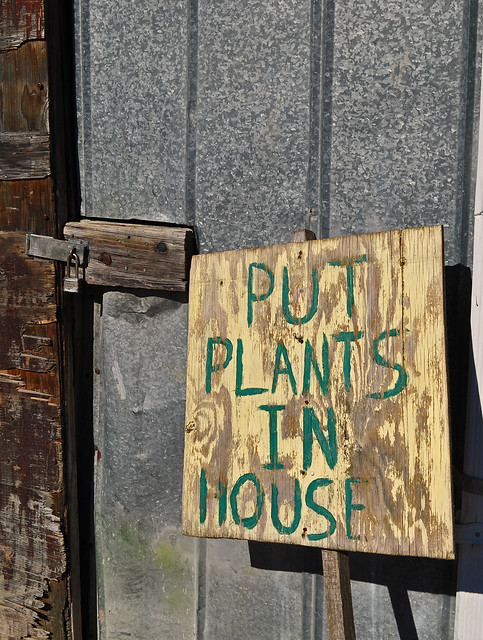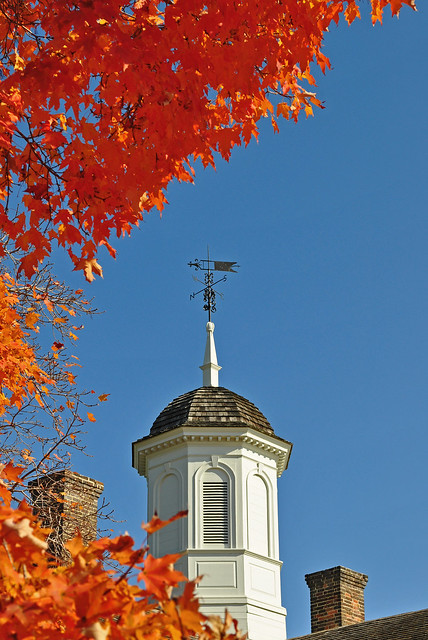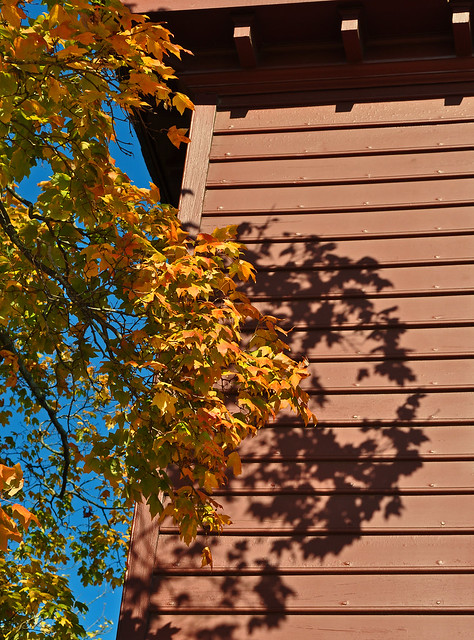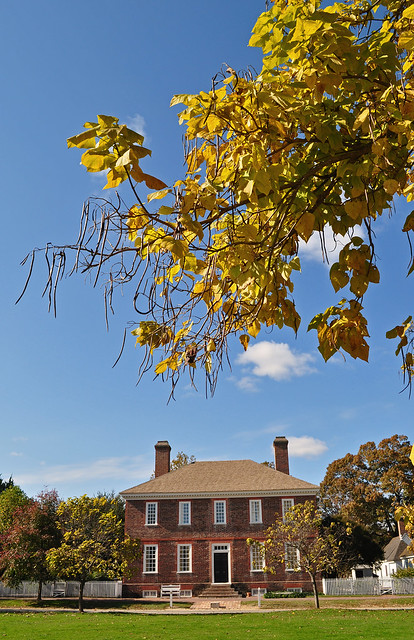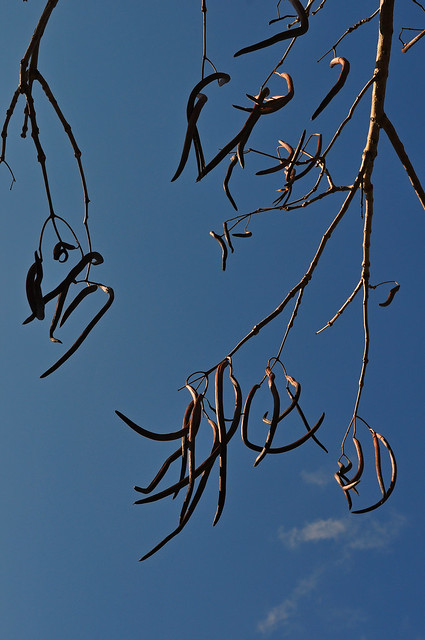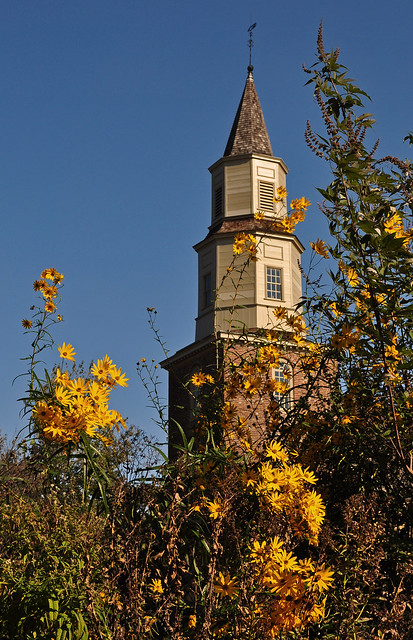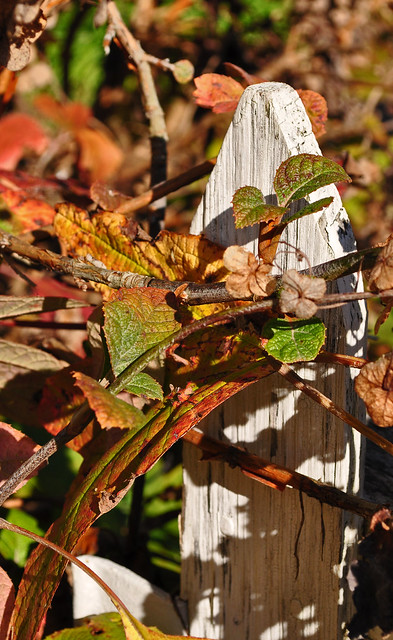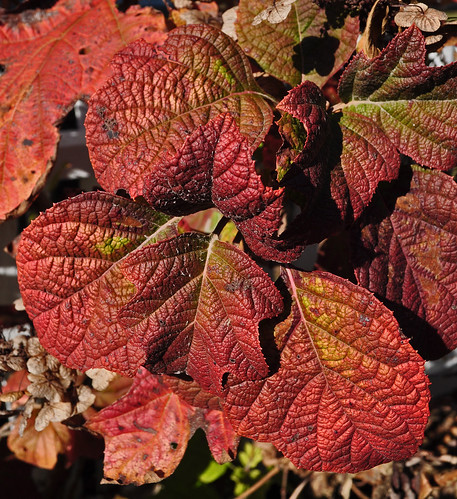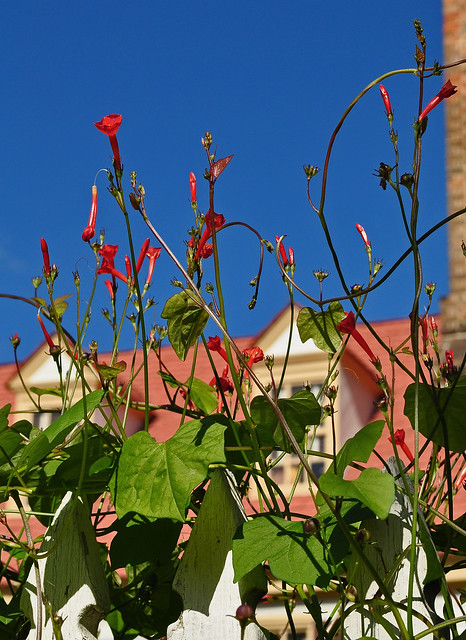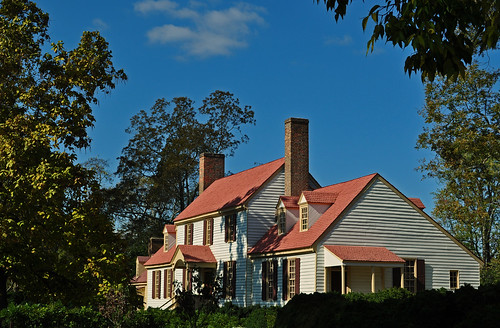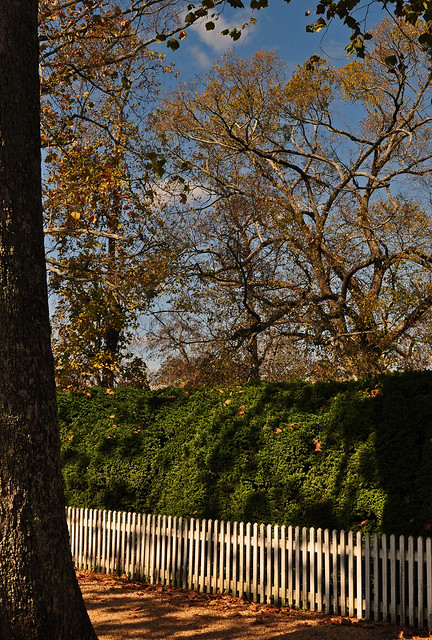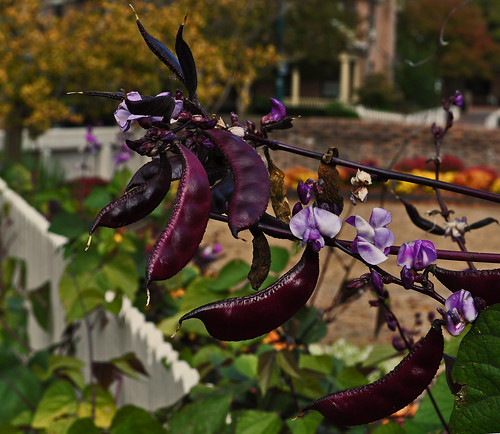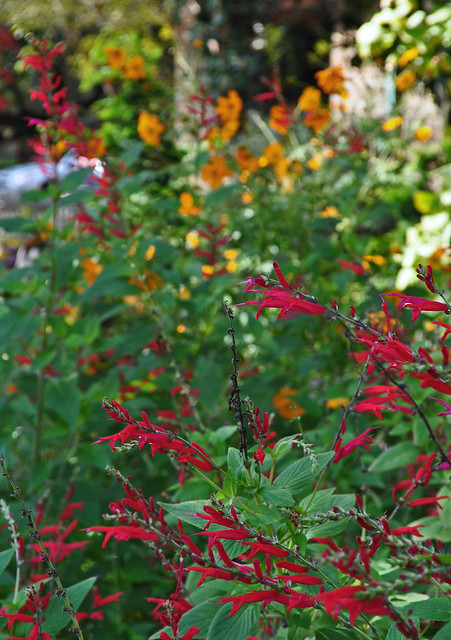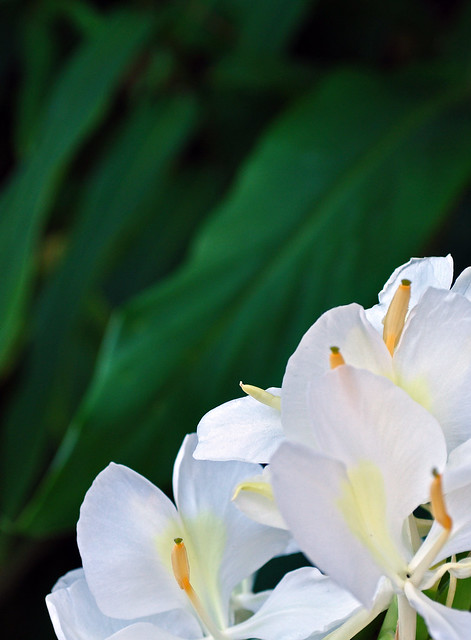The past week has been an especially busy and long one for me with work. On Thursday we got in our Christmas trees and spent the next four days getting them cut, put in stands, sprayed with Wilt Pruf, graded, priced and tagged. Our trees come from the mountains of North Carolina where the grower told me they had an ideal summer for Fraser Firs (it was good to here that at least someplace in this country had a nice summer). Monday our wreaths and roping came in, which all had to be sorted as well. Everything is ready now, and all we have to do is sell them, which judging by this past weekend's activity should be no problem (I say with crossed fingers). Though I am feeling every week of my 50 years, I can at least take a breath for a few days.
Since I have been so focused on the upcoming season, I guess it only appropriate that our beautiful fall is starting to morph into "the big drop" when color is shed from the trees. While not completely gone it is definitely on its way out. Fortunately my garden is offering other distractions right now. I got my pansies in about a month ago, and so far none have been stolen. I will spare you pictures until the cold time when I have nothing else to show. One of my favorite companions for the pansies is Giant Red Mustard (
Brassica juncea var. rugosa), and I am at the point now that I could not garden in the winter without this plant. I love its color, crinkled foliage and resilience.
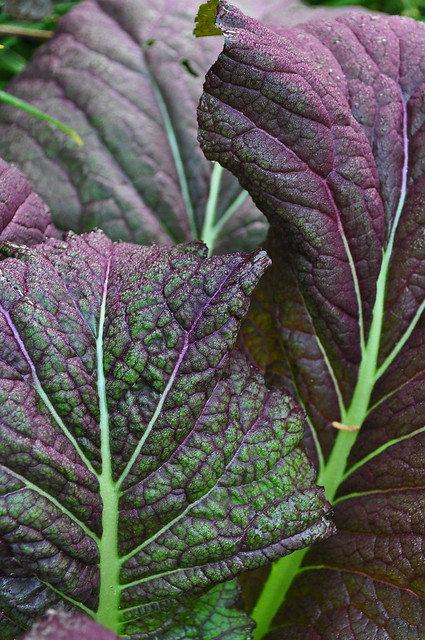
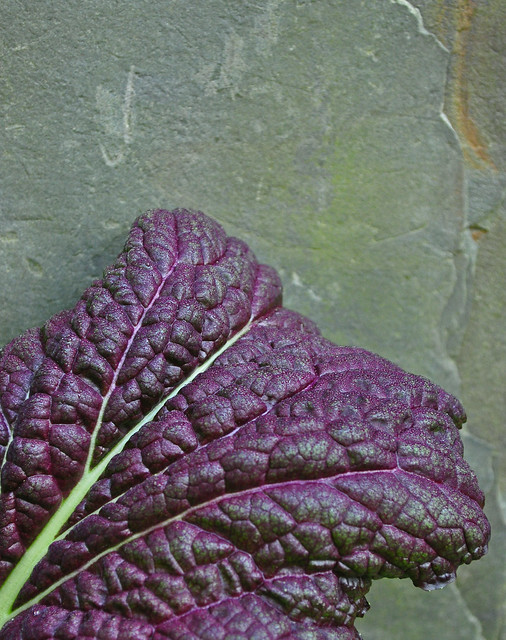
The only perennial I have ever planted for its fall foliage is
Amsonia hubrichtii or Bluestar. In fact I do not really care for its flowers which are skim milk blue, one of my least favorite garden colors. But the foliage texture and fall show make me forget the flowers.
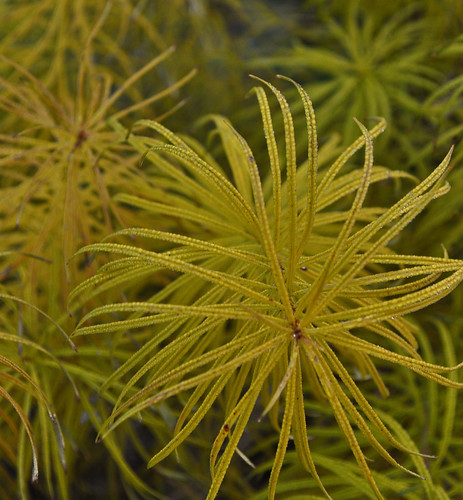
Yesterday I also noted that my Hime Quince (
Chaenomeles) had its first bloom of the season, prompting me to make note this year of just how long it will bloom.
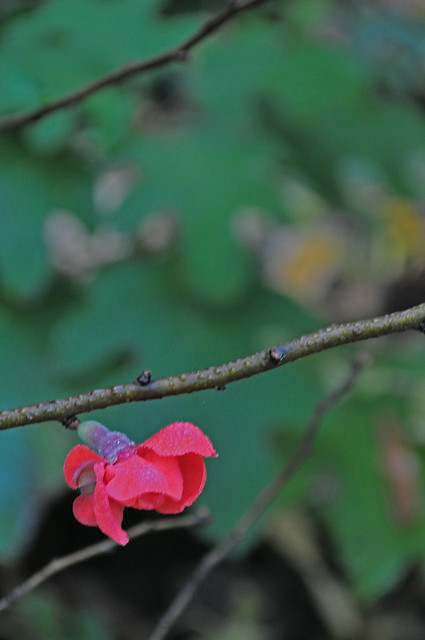
We have yet to have a frost which is fine with me, so I can still enjoy the foliage combo of my Golden Jasmine (
Jasminum officinale 'Aureum') and Big Red Judy Coleus (
Solenostemon scutellarioides 'Big Red Judy'). I have already made a date with Judy for next summer.
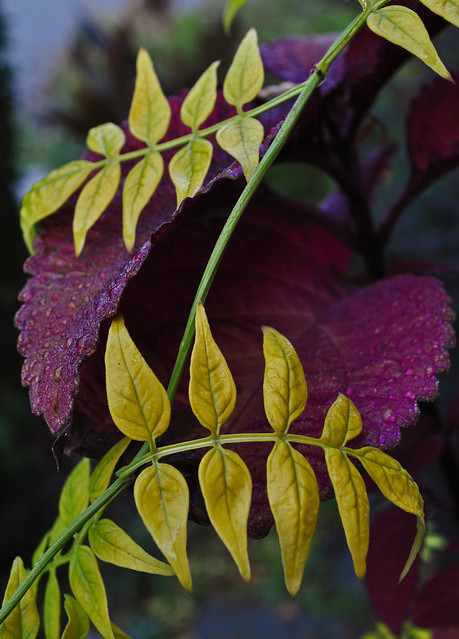
I was also surprised to see one of my new additions blooming so early. I was under the impression that
Algerian Iris (
Iris unguicularis) would bloom in late winter, but I will not deny this blossom.
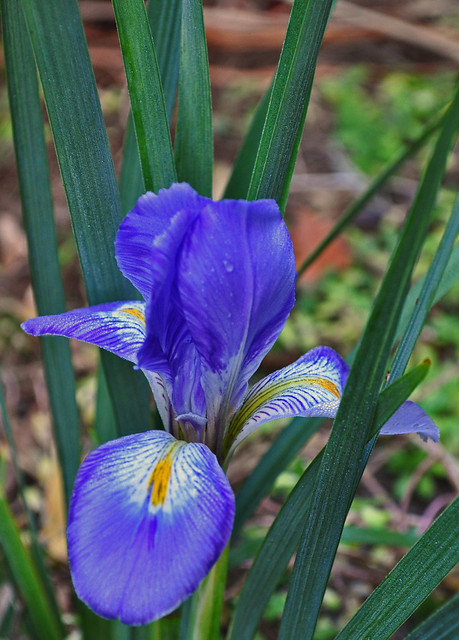
You would think that with its lush tropical foliage that Tetrapanax (
T. papyrifer 'Steroidal Giant') would have suffered through this summer's drought, but it grew every bit of 10' and a few weeks ago it started to flower. Never having seen it bloom, I was surprised by the flowers, though I am not ready to declare them beautiful.
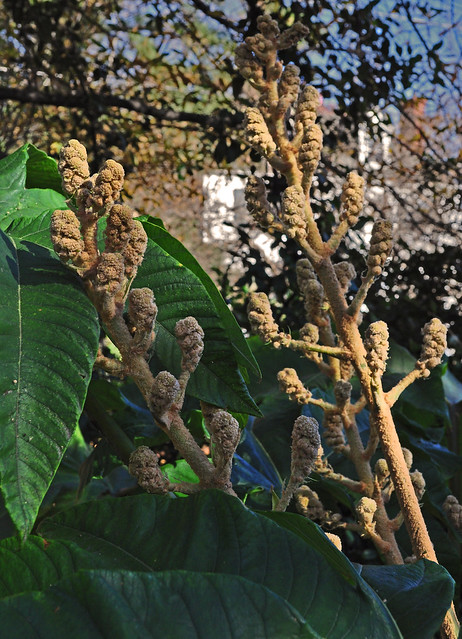
I hope each of you has a chance in the next few days to reconnect with friends and family and perhaps meet someone new as well.
Please have a happy and safe Thanksgiving!
